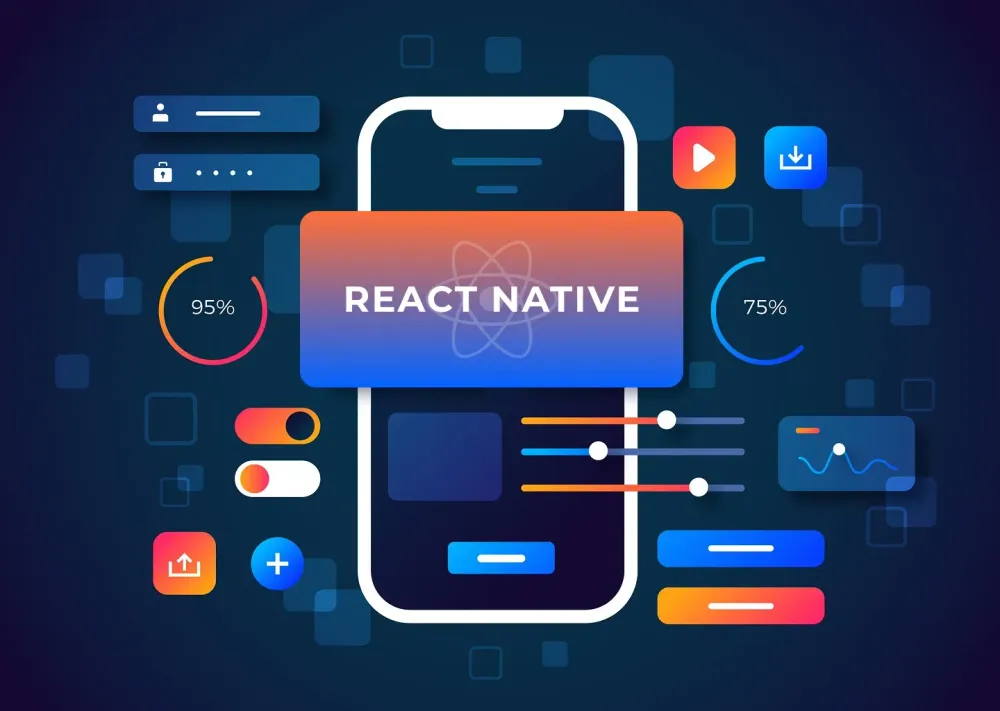Home
Services
Products
Projects
Who We Are
Blogs
Contact Us

Is React Native Right for Mobile Development?
Introduction
In the fast-evolving world of mobile app development, choosing the right framework can significantly impact the success of a project. React Native has emerged as a leading solution, offering cross-platform compatibility, cost-efficiency, and near-native performance. But is it the right choice for your business?
At DEFX, we specialize in crafting top-tier React Native applications that deliver exceptional user experiences. In this article, we'll explore why React Native is a smart choice for mobile development and how it compares to other solutions.
What is React Native?
React Native is an open-source JavaScript framework developed by Facebook that allows developers to create iOS and Android apps using a single codebase. It leverages React, a popular JavaScript library, while utilizing native components for a seamless experience.
Unlike traditional native development, which requires separate Swift/Objective-C and Java/Kotlin codebases for iOS and Android, React Native enables developers to write once and deploy across multiple platforms.
Benefits of Using React Native
1. Cross-Platform Development
One of React Native’s biggest advantages is its cross-platform capability. Businesses can develop a single app that runs on both Android and iOS, reducing development time and costs while maintaining high-quality performance.
2. Cost and Time Efficiency
By using one codebase for multiple platforms, companies can save significant resources on development, testing, and maintenance. This makes React Native an attractive option for startups and enterprises alike.
3. Near-Native Performance
Although it’s built on JavaScript, React Native compiles to native code, ensuring smooth performance. It also allows developers to integrate native modules when needed, optimizing app speed and responsiveness.
4. Hot Reloading for Faster Development
Developers can instantly see changes in real time using hot reloading, which speeds up debugging and feature implementation. This feature enhances productivity and reduces development cycles.
5. Strong Community Support
React Native has a large and active community, offering a wealth of third-party libraries, plugins, and continuous updates. Developers can easily find solutions to common challenges, making development smoother.
6. Reusable Components
With React Native, developers can create reusable components, making the UI design process more efficient. This consistency helps maintain a high-quality user experience across different devices.
7. Easy Integration with Third-Party Plugins
React Native supports third-party integrations such as payment gateways, analytics tools, and push notifications. This flexibility allows developers to enhance app functionality without extensive native coding.
Companies Using React Native
React Native has been adopted by many major brands, proving its reliability in production environments. Some notable companies that use React Native include:
- Facebook – The creator of React Native uses it for portions of its app.
- Instagram – Migrated parts of its app to React Native for a seamless experience.
- Airbnb – Initially used React Native to speed up development and improve UI consistency.
- Tesla – Leveraged React Native to develop an intuitive car control app.
- UberEats – Uses React Native for its restaurant dashboard application.
- DEFX – Our team at DEFX builds high-performance React Native apps for businesses worldwide.
Comparing React Native to Other Mobile Development Approaches
React Native vs. Native Development
While native development (Swift for iOS, Kotlin for Android) offers full platform control, it requires maintaining two separate codebases, increasing costs and development time. React Native provides a balance between performance and efficiency, making it ideal for most use cases.
React Native vs. Flutter
Flutter, developed by Google, is another cross-platform framework that uses the Dart programming language. While Flutter offers faster UI rendering, React Native has better adoption, a larger community, and access to native modules.
React Native vs. Hybrid Apps (Ionic, Cordova)
Hybrid frameworks like Ionic and Cordova rely on web technologies and run within a WebView, often leading to performance issues. React Native renders using native components, ensuring a much smoother user experience.
When to Use React Native
React Native is an excellent choice for:
- Startups and businesses looking to launch an MVP quickly.
- Companies that need a cross-platform app with native-like performance.
- Projects with limited budgets that can benefit from a single codebase.
- Apps requiring regular updates, as React Native speeds up iteration cycles.
However, if you need full native performance with heavy graphics processing (e.g., high-end gaming apps), traditional native development may be a better option.
The Future of React Native
React Native is continuously evolving, with improvements in performance, UI rendering, and native integrations. With Meta (Facebook) backing its development, React Native remains a future-proof choice for businesses looking to scale their mobile apps.
Conclusion
React Native is a robust, cost-effective solution for modern mobile app development. It combines the efficiency of cross-platform development with near-native performance, making it a popular choice for businesses worldwide.
At DEFX, we specialize in custom React Native solutions to help businesses create high-quality, scalable mobile apps. Whether you're a startup or an enterprise, we can bring your app idea to life with React Native. Ready to turn your idea into a powerful mobile app? Get in touch with DEFX and let’s build the future together.
See More
Contact Us
Let’s make your Idea into Reality
Let's Talk
© Copyright DEFX. All Rights Reserved
GoodFirms ★ 4.2
Clutch ★ 4.2
Google ★ 4.2
